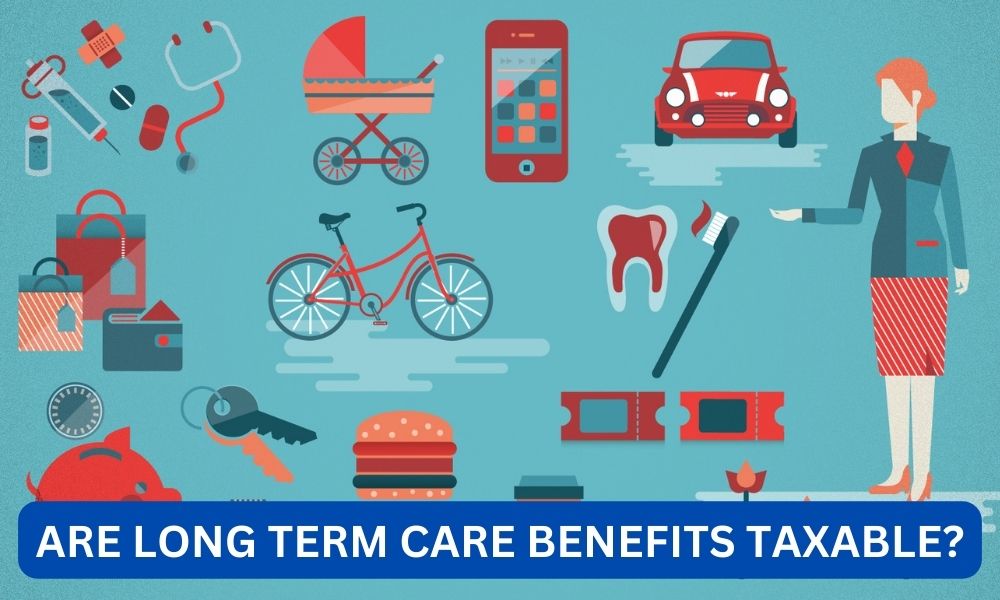Long term care is a type of healthcare service that provides assistance to individuals who are unable to perform daily activities due to chronic illness, disability, or old age. This type of care can be provided in a variety of settings, including nursing homes, assisted living facilities, and in-home care. While long term care can be a necessary and beneficial service for many individuals, it can also come with a hefty price tag. As such, many people wonder if long term care benefits are taxable. In this article, we will explore the tax implications of long term care benefits and provide valuable insights for readers.
Contents
Understanding Long Term Care Benefits
Long term care benefits are typically provided through insurance policies or government programs. These benefits cover a range of services, including assistance with daily activities such as bathing, dressing, and eating, as well as medical care and supervision. The cost of long term care can vary greatly depending on the type of care and the location, but it can easily reach thousands of dollars per month.
There are several ways to pay for long term care, including personal savings, long term care insurance, and government programs such as Medicare and Medicaid. However, regardless of how the care is paid for, many people are concerned about the tax implications of receiving long term care benefits.
Read:How soon can the benefit payments begin with a deferred?Are Long Term Care Benefits Taxable?
The short answer is, it depends. Long term care benefits can be taxable or tax-free, depending on the source of the benefits and the type of care received. Let’s take a closer look at the different scenarios.
Long Term Care Insurance Benefits
If you have a long term care insurance policy, the benefits you receive are generally not taxable. This is because long term care insurance is considered a form of health insurance, and health insurance benefits are not taxable. However, there are a few exceptions to this rule.
If you receive long term care insurance benefits as a reimbursement for medical expenses, such as nursing home fees or home health care services, the benefits are not taxable. However, if you receive a cash benefit from your insurance policy, it may be taxable. This is because the cash benefit is considered income and is subject to income tax. It is important to consult with a tax professional to determine the taxability of your specific long term care insurance benefits.
Government Programs
Medicare and Medicaid are two government programs that provide long term care benefits to eligible individuals. Medicare is a federal health insurance program for individuals over the age of 65, while Medicaid is a joint federal and state program that provides health coverage to low-income individuals.
Read:how to check pending snap benefits onlineMedicare does not cover long term care services, except in limited circumstances, such as after a hospital stay. However, Medicaid does cover long term care services, including nursing home care and home health care. The tax implications of Medicaid benefits are similar to those of long term care insurance benefits. If the benefits are used to pay for medical expenses, they are not taxable. However, if the benefits are received as cash, they may be taxable.
Employer-Provided Long Term Care Benefits
Some employers offer long term care benefits as part of their employee benefits package. These benefits are typically provided through a group long term care insurance policy. If your employer pays for the premiums of the policy, the benefits you receive are generally not taxable. However, if you pay for the premiums yourself, the benefits may be taxable.
Tax Deductions for Long Term Care Expenses
While long term care benefits may be taxable in certain situations, there are also tax deductions available for long term care expenses. These deductions can help offset the cost of long term care and make it more affordable for individuals and families.
One of the main tax deductions available for long term care expenses is the medical expense deduction. This deduction allows individuals to deduct qualified medical expenses that exceed 7.5% of their adjusted gross income. Long term care expenses, including nursing home fees, home health care services, and assisted living costs, are considered qualified medical expenses and can be deducted if they exceed the 7.5% threshold.
Read:what is tanf benefitsAnother tax deduction available for long term care expenses is the long term care insurance premium deduction. If you pay for your long term care insurance premiums out of pocket, you may be able to deduct a portion of these expenses on your tax return. The amount you can deduct depends on your age and the total amount of qualified long term care premiums you paid during the year.
Case Studies and Statistics
To further illustrate the tax implications of long term care benefits, let’s take a look at a few case studies and statistics.
Case Study 1: John and Mary
John and Mary are a retired couple in their 70s. They have a long term care insurance policy that they have been paying premiums on for several years. Last year, Mary had a stroke and required long term care services in a nursing home for six months. The total cost of her care was $60,000. John and Mary received a cash benefit of $30,000 from their long term care insurance policy to help cover the cost of Mary’s care. They also paid $10,000 out of pocket for the remaining expenses. In this case, the $30,000 cash benefit is considered taxable income, but the $10,000 out of pocket expenses can be deducted as a medical expense on their tax return.
Case Study 2: Sarah
Sarah is a 65-year-old widow who lives alone. She has a long term care insurance policy that she has been paying premiums on for several years. Last year, Sarah fell and broke her hip, requiring her to receive long term care services in a nursing home for three months. The total cost of her care was $30,000. Sarah received a cash benefit of $20,000 from her long term care insurance policy to help cover the cost of her care. In this case, the $20,000 cash benefit is considered taxable income, but Sarah can deduct the remaining $10,000 of her out of pocket expenses as a medical expense on her tax return.
Statistics
According to the U.S. Department of Health and Human Services, 70% of individuals over the age of 65 will require some form of long term care in their lifetime. Additionally, the average cost of a private room in a nursing home is over $100,000 per year. These statistics highlight the importance of understanding the tax implications of long term care benefits and planning for potential long term care expenses.
Conclusion:
In conclusion, long term care benefits can be taxable or tax-free, depending on the source of the benefits and the type of care received. Long term care insurance benefits and government program benefits are generally not taxable if they are used to pay for medical expenses. However, if the benefits are received as cash, they may be taxable. There are also tax deductions available for long term care expenses, which can help offset the cost of care. It is important to consult with a tax professional to determine the tax implications of your specific long term care benefits and expenses. Planning for potential long term care needs and understanding the tax implications can help individuals and families make informed decisions about their long term care options.









